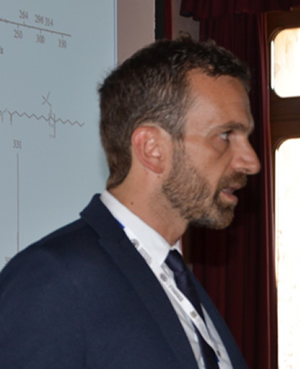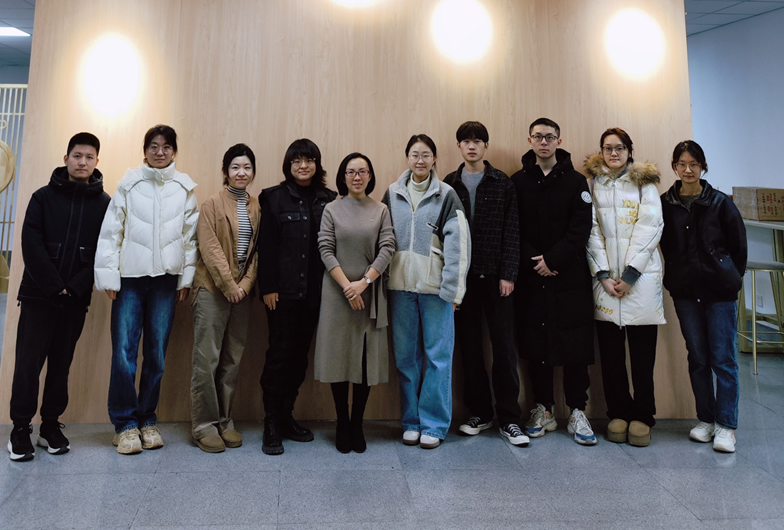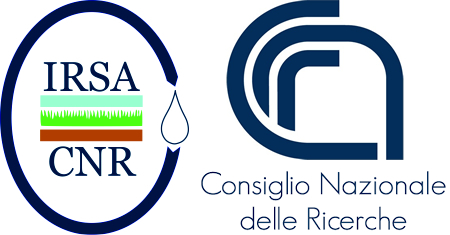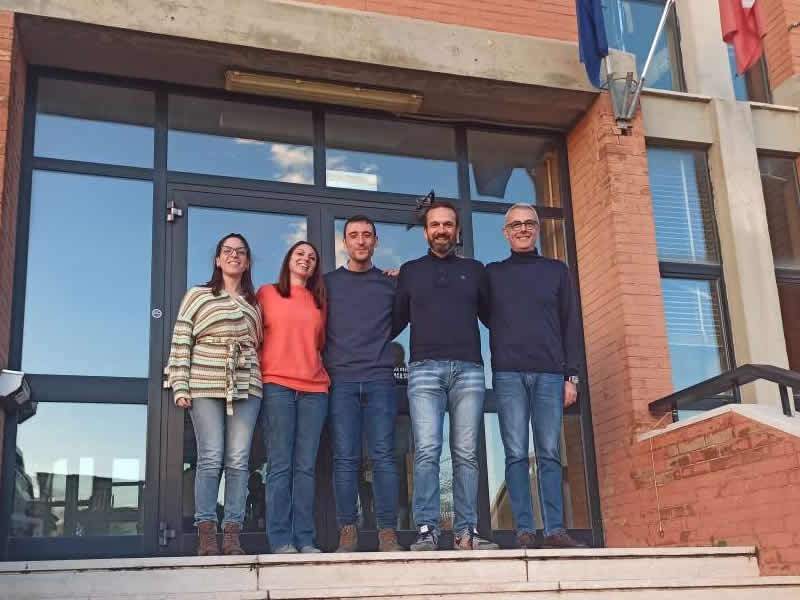School of Environment
School of Environment is one of the oldest and most prestigious institutions for environmental research and education in China. The School of Environment aims to respond to the strategic needs of the country for environmental remediation and ecological restoration of major river basins and/or core regions in China. By tackling the leading edges of international environmental research, building multi-disciplinary, high-level research and education teams, creating a superb incubator for innovative and elite scholars, School of Environment is developing into an integrated platform involving education, research, practice, management, and industrial applications, for efficient social service provision and international cooperation and communication. Ultimately, the School strives to establish a first-class environmental discipline in China and the world.
The school has four departments (Departments of Environmental Sciences, Environmental Planning and Management, Ecological Engineering in environment, and Environmental Systems Engineering) and seven institutes (Institutes of Environmental Sciences, Environmental Policy and Management, Watershed Management, Aquatic Ecology Engineering, Urban and Regional Ecology, Water Quality Control Engineering, and Cross-media Pollution Control).
There are three high-profile research laboratories and centers at the school (i.e., the State Key Joint Laboratory for Environment Simulation and Pollution Control, the Key Laboratory of Water and Sediment Sciences of Ministry of Education, and Beijing Engineering Research Center for Watershed Environmental Restoration & Integrated Ecological Regulation.
According to the ESI report, the Environment/Ecology program of BNU was respectively among 0.1% (no. 60th) and 0.3% (no. 200rd) of the total 792 research institutes (i.e., top 1% of worldwide research institutes) in terms of the total number of published papers, and the total number of citations. BNU’s environmental science program was ranked in the top 101~150 in the 2016 QS World University Rankings and BNU’s Earth and Environmental sciences program was ranked in 84 in the Nature Index ranking.

Dr. Li Anjie
Dr. Li Anjie is an associate professor at the School of Environment-Beijing Normal University, obtained her PhD from the University of Hong Kong in 2009 and has research interests in Wastewater treatment biotechnology, Bioenergy recovery and Environmental microbiology. Her research in Wastewater treatment and Water environmental remediation is mainly directed towards the removal of nitrogen and trace organic pollutants by aerobic granular sludge biotechnology as well as analyzed microbial structure/metabolism by high-throughput multi omics technology. She has been involved in a variety of national research projects, and has over 40 publications on renowned journals such as WR, CEJ, BT etc. She also undertakes the member of IWA and the reviewer of top international journals, including WR, JHM, BT, CEJ, Chemosphere et al.
Research Grants
- National Natural Science Foundation of China (52261135627): "Sewage advanced treatment combining resource recovery, emerging pollutants degradation and carbon emission reduction: A new strategy to turn a problem into an opportunity", 2023-2025, PI.
- National Natural Science Foundation of China (51778056): "The removal mechanism of pharmaceutical emerging contaminants (ECs) by using partial nitrifying granular sludge", 2018-2021, PI.
- National Natural Science Foundation of China (51478042): "Biodiesel production from granular sludge during sugar-containing wastewater treatment: characterization, mechanism, and technology", 2015-2018, PI.
- National Natural Science Foundation of China (51208038): "Quorum sensing signals (AHLs) for sludge granulation with partial nitritation-anammox: characterization, mechanism, and technology", 2013-2015, PI.
- Ph. D. Programs Foundation of Ministry of Education of China (20110003120028): "Mechanism and technology of autotrophic nitrifying sludge granulation dosing by modified plastic carriers", 2011-2014, PI.
Membership
International Water Association
The Water Research Institute (IRSA) was established in 1968 with the aim of carrying out research activities in the fields of management and protection of water resources and in the development of methodologies and technologies for water purification and treatment of urban and industrial wastewater. Multidisciplinarity has always been the main peculiarity and “strength” of IRSA, where engineers, chemists, geologists, biologists, physicists, etc., work together in the research groups.
The thematic research activities are developed within the CNR mission through projects within the various Research Areas of the Department of Earth System Sciences and Environmental Technologies (DSTTA) and other interdepartmental initiatives. Furthermore, the institute is involved in European and other international projects and in projects financed by Ministries (Environment, Health, Research, Economic Development), public institutions (Civil Protection, Basin Authority, Regions, Provinces), and by the private sector (Industries, Companies, SMEs).
Since its foundation, the Institute has been divided into three locations, one in the North: Brugherio (MB), one in the Center: Montelibretti (Rome) and one in the South: Bari (BA), whose research activities mainly focus on pollution, water quality and their effects on biological communities (at Brugherio and Montelibretti), processes for wastewater and sludge treatment and methodologies for water resources management and protection (at Bari and Montelibretti).
Since September 2018, two prestigious, additional locations have been added to the Institute: Verbania (VB), where research is carried out mostly at the ecosystem level, and Taranto (TA), with a focus on the integrated approach for the sustainable management of the coastal strip.
The research activities carried out by the Water Research Institute are divided into the following lines of activity:
- integrated and sustainable management of water and biological resources and understanding of the phenomena for the definition of methods and models for assessing the effects of anthropogenic pressures on the environment;
- biodiversity and functionality of aquatic ecosystems through the analysis of ecological and biochemical interactions between biotic and abiotic components;
- technologies for water purification, also for the reuse of civil and industrial wastewater, sludge management and enhancement;
- advanced processes for the recovery of resources and energy from the treatment of wastewater, sludge, waste, biomass in the name of the circular economy;
- innovative technologies for the characterization, safety and remediation of contaminated sites and environments.

Dr. Carlo Pastore
Dr. Carlo Pastore is a Senior researcher at CNR-IRSA.
He is the head of “Chemical characterization of complex residual biomasses and development of new valorization processes for obtaining chemicals with high added value” group.
His main research topics concern the chemical characterization of waste biomasses (urban organic waste, sewage sludge, vegetable and animal oils) to identify the relevant chemical potential and design/optimize innovative sustainable processes to recover resources to implement the “Circular Economy” scenario with new solutions.
He has been involved as Principal Investigator for IRSA in over ten international and national projects. The overall scientific production accounts for more than 84 articles in international journals with peer review (over 2200 citations, H-index: 27), 7 book chapters, 3 national patents, and more than 50 oral/poster presentations to scientific conferences or other publications. He was also chairman of three different international conferences related to circular economy and recovery of resources from waste.
Professional services/membership
- Technical expert in the evaluation of projects financed by the Italian Ministry of the Economic development (MISE) and the Ministry of the Italian Public Instruction and Research (MIUR)
- Member of the National Working Group on the recovery and reuse of "Phosphorous"
- Director of two laboratories in CNR-IRSA (Biomass Characterization and Valorization Laboratories)
- Member of the National Society of Chemistry (Green Chemistry and Environmental Chemistry)
- Member of the round table for the definition of topics in the Area "Risks and Technology for the Environment" of the CNR (Representant of CNR-IRSA)
- Member of the editorial board of Biomass, MDPI
Research Grants
- H2020 LIFE2020 – Project BioLuBridge (LIFE20 ENV/IT/000452); PI for CNR
- H2020 RIA – Project RESURBIS(n.730349); PI for CNR
- H2020 MSCA-RISE – Project IproPBio; PI for CNR
IRSA-CNR group
The group from IRSA-CNR provides expertise and competencies in chemical and biochemical characterization of residual biomasses of different nature (sewage sludge, agro-food waste, algae, etc.) and respective chemical valorization under sustainable conditions (thermochemical processes under homogeneous and heterogeneous catalysis). The research activity addresses reliable and cost-effective techniques for recovering both material and energy from wastes.
Ligno-cellulosic material activation for obtaining unconventional biofuel, the valorisation of waste-oil for producing biodiesel, carbon dioxide utilization in chemical and enzymatic synthesis and the use of non-conventional media (Supercritical Fluids) are the main topics of research investigated.





